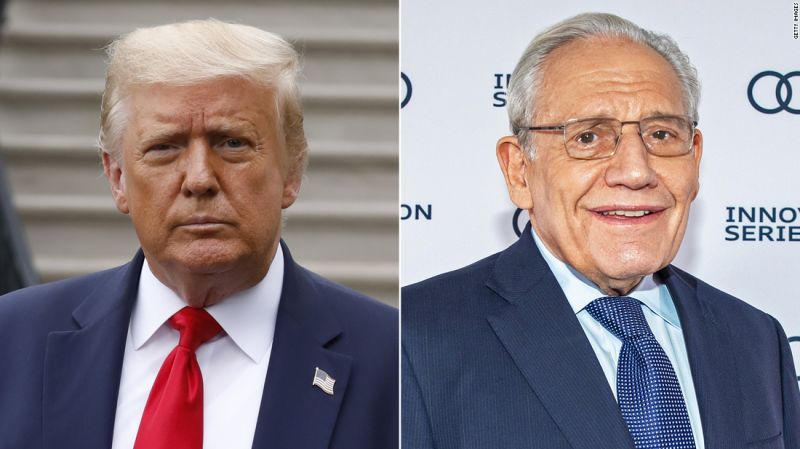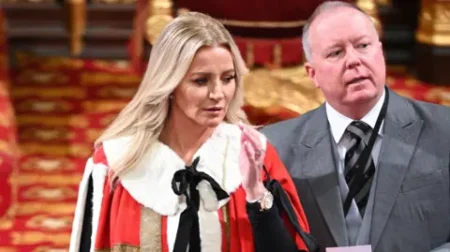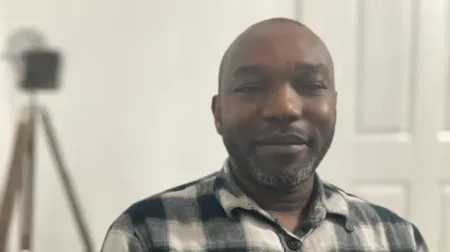President Donald Trump recently faced a legal setback when a federal judge dismissed his lawsuit against renowned journalist Bob Woodward and his publishing house, Simon & Schuster. This ruling came on a notable day, as Trump concurrently filed a different lawsuit against the Wall Street Journal. The intricacies of this case shed light on the ongoing tensions in the media and political landscape, particularly concerning the issues of copyright and consent.
The case was presided over by U.S. District Judge Paul Gardephe, located in the Southern District of New York. During the proceedings, Judge Gardephe noted that Trump’s legal team has been granted a month to submit an amended complaint, suggesting a potential avenue for further legal action. However, the judge expressed skepticism regarding the plausibility of Trump’s claims, indicating that it seems “unlikely” that Trump could successfully establish a copyright interest in the material at the center of the dispute—specifically, the audiobook titled “The Trump Tapes.”
Released in 2022, “The Trump Tapes” is a compilation of twenty interviews conducted by Woodward with Trump that spanned from 2016 to 2020. In his lawsuit, filed in early 2023, Trump alleged that Woodward had improperly released audio recordings from these conversations without obtaining the necessary consent from him. This legal move was unusual, especially given Trump’s prominence and the historical context of his interactions with the media.
Initially, Trump sought nearly $50 million in damages, asserting that the audio recordings constituted “protected material” that was subject to strict limitations regarding its use and distribution. However, Woodward and Simon & Schuster contended that Trump’s lawsuit was unfounded, expressing their intention to defend against the claims vigorously.
In a comprehensive 81-page ruling delivered on Friday, Judge Gardephe highlighted that Trump had not convincingly demonstrated his status as a joint author of the audiobook, nor had he proven any copyright interest concerning the interviews. Consequently, he ruled in favor of Woodward and granted the motion to dismiss the case, underscoring the complexities of copyright law in relation to interviews and recorded conversations.
In response to the court’s ruling, Simon & Schuster released a statement conveying their satisfaction with the outcome. They emphasized their position that the court recognized the lack of merit in Trump’s claims, reinforcing the legal standing they maintain in publishing and distributing the audiobook.
The ruling not only encapsulates a critical moment in the legal battles waged by the former president but also reflects broader themes regarding the interactions between prominent figures and the press. The dynamic between Trump, a figure of immense public interest, and Woodward, a seasoned journalist known for his investigative prowess, illustrates the contentious nature of media representation and the rights intertwined with it.
Additionally, this legal development is likely to resonate in the media landscape, especially as it highlights the tension between claims of copyright and the freedom of the press. As Judge Gardephe signaled the possibility of an amended complaint, observers are left to ponder the potential implications for future interactions between public figures and journalists, as well as the boundaries of copyright law in these contexts.
In summary, while Trump now faces a dismissal of his lawsuit against Woodward and Simon & Schuster, the implications of this case extend beyond the courtroom. It embodies the ongoing struggle for clarity in the murky waters of media rights, consent, and the ever-evolving relationship between public figures and the press, serving as a notable chapter in the continuing saga of Trump’s interactions with media and legal systems alike. Reporting contributions from David Goldman and Hannah Rabinowitz further highlight the importance of this case within contemporary legal discourse.











